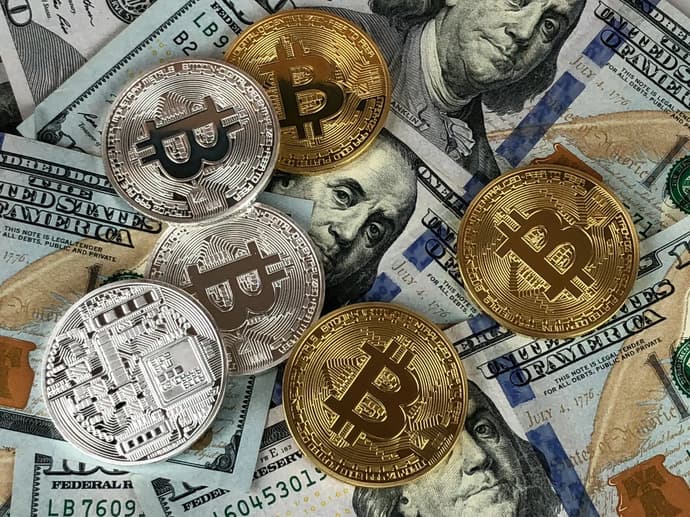
How Digital Currencies Are Changing Esports and In-Game Markets

The game has changed, and not just on screen. While players chase headshots and perfect combos, a quieter revolution is unfolding behind the HUD. One measured not in K/D ratios or XP, but in blocks, hashes, and coin. Digital currency—led by the likes of Bitcoin—isn’t just knocking at the door of esports and in-game marketplaces. It’s already inside, checking the ping and setting up camp.
Across the world, streamers, speedrunners, and tournament grinders are increasingly transacting in crypto. Whether it's prize pools, digital skins, or tipping on livestreams, a whole new economy is forming under the glow of RGB lights and Twitch overlays. The shift isn't just about novelty—it's about control, speed, and value. And it's happening faster than many expected.
USD to BTC: Navigating Conversions for Players and Traders
Right now, Bitcoin is trading at $105,173.56, up 58.83% from this time last year. For anyone operating in esports or digital economies, that number matters. It’s not just for the investors. Competitive gamers, modders, and item traders who accept BTC for their services or winnings must constantly think in conversion: what’s this worth in dollars, and what will it be tomorrow?
The USD to BTC trade-off is no longer the domain of tech bros with complicated spreadsheets. It’s part of everyday calculations. A $200 tournament win can turn into $210 or $180 by the time you cash out, depending on the market’s twitch. That kind of volatility adds adrenaline to a space already built on fast clicks and faster decisions.
But it’s not just about upside. The real allure is agility. Traditional payment rails move like molasses. Crypto moves like a sniper on Adderall—fast, precise, and global. No bank hours. No regional delays. Just clean, peer-to-peer value transfer with a public ledger as your receipt.
The Rise of Cryptocurrency Use in Esports
Crypto and esports grew up in the same neighborhood—fast-moving, internet-native, and deeply skeptical of institutions. They’re both borderless, built by communities more than corporations, and thrive on real-time feedback loops. Naturally, they found each other.
Prize pools now often come with wallet addresses attached. Peer-to-peer (P2P) tipping in crypto has become standard for smaller content creators. And in-game economies are evolving too—from simple item shops to decentralized marketplaces where players trade skins, power-ups, and virtual land using tokens. In some cases, these aren’t just fantasy dollars. They’re real assets with real liquidity.
Of course, esports tournaments now offer optional crypto payouts. That's not just prize money—it’s payment, patronage, and investment rolled into one. And behind it all is a basic equation: freedom over friction.
Security, Transparency, and New Business Models
Gamers are used to lag. They're not used to getting ghosted by payment processors. That’s why crypto's transparency is so appealing. On-chain transactions let both sides of a deal verify what went where. If you’ve ever waited 10 days for a platform to clear a tournament payment, you know how revolutionary that can feel.
We're also seeing entirely new business models take root:
- Smart contracts that release prize pools automatically once conditions are met.
- Token-based governance where game communities vote on updates or payouts.
- Player-owned economies where your item isn’t just a cosmetic—it’s an asset with a resale market.
Some games even issue their own tokens, which players earn through skill or contribution, not just credit cards. That flips the model. Instead of pay to win, it's play to earn.
Platforms, Market Data, and Resources
To navigate this hybrid world of gaming and crypto, players rely on reliable data and tools. Live market feeds, in particular, help users time their withdrawals, trades, and transfers. A converter showing BTC's current value —whether it's $104,962 or $106,114—can mean the difference between a win and a write-off.
Useful tools for gamers include:
- Real-time BTC pricing widgets
- Gas fee estimators for Ethereum-based in-game assets
- P2P marketplaces with wallet integration
- Portfolio trackers with multi-coin support and item linkage
Resources like these are no longer the exclusive domain of finance nerds. They’re just part of the gear—right next to your mousepad and your stream deck.
Place Your Bet: Crypto in Competitive Events
Wagering has always walked the line in esports. But now, thanks to crypto’s frictionless nature, bets are faster, cleaner, and often off-chain until the final result. Platforms facilitating player-vs-player challenges can settle up in Bitcoin or tokens within seconds of match end.
We’re seeing this trend in FPS titles and strategy games, where 1v1 formats or bracket challenges make betting simple and transparent. While regulatory gray zones still exist, the appetite is clear. The same goes for spectators. Many viewers now tip or wager using micro-transactions in BTC or other tokens, pushing fan engagement into the economic layer.
It’s Vegas without the velvet rope. Just pixels and protocol.
Crypto at the Heart of In-Game Events
From seasonal drops to special tournaments, in-game events are now integrating crypto rewards. Not as gimmicks, but as core incentives. Players who complete challenges or top leaderboards might earn tokenized assets tradable for real-world value.
Picture it: a “Winter Wipeout” challenge pays out in Bitcoin equivalents to the top 100 finishers. Players log in not just for prestige, but for pay. The digital becomes tangible.
And unlike some legacy systems, crypto rewards are instant and borderless. Whether you're in Seoul or São Paulo, if you win, you get paid. No checks. No delays.
Strategic Takeaways for Gamers and Investors
For gamers: Learn the tools. Know the value of the tokens you earn or accept. Diversify your wallets and use hardware security when you can. Understand the risks, but don’t ignore the rewards.
For investors: This isn’t just hype. It’s a working model with real user traction. Crypto in gaming isn't about speculation—it's about utility. Real transactions, real markets, real value. Follow the platforms and events, and watch where the wallet flows lead.
And for everyone in between: This moment in gaming history is a lot like that scene in The Matrix where Neo realizes he can bend the rules. Crypto in esports lets players not just play the game—but own it.

Kateryna Prykhodko ist eine kreative Autorin und zuverlässige Mitarbeiterin bei EGamersWorld, die für ihre fesselnden Inhalte und ihre Liebe zum Detail bekannt ist. Sie kombiniert Storytelling mit klarer und durchdachter Kommunikation und spielt eine große Rolle sowohl bei der redaktionellen Arbeit der Plattform als auch bei der Interaktion hinter den Kulissen.
 Roblox Anime Guardians Codes Februar 2026Entdecken Sie alle funktionierenden Roblox Anime Guardians Codes. Löse sie für kostenlose Mystic Coins, Trait Rerolls, Artefakte und Belohnungen ein.
Roblox Anime Guardians Codes Februar 2026Entdecken Sie alle funktionierenden Roblox Anime Guardians Codes. Löse sie für kostenlose Mystic Coins, Trait Rerolls, Artefakte und Belohnungen ein. Nicht-britische Online-Casinos: Spiele, Formate, und was Spieler erwarten könnenOnline-Casinos, die außerhalb des britischen Glücksspielrahmens operieren, ziehen die Aufmerksamkeit auf sich, da sie sich in ihren Lizenzierungsmodellen, Spielportfolios und Werbeaktionen unterscheiden...
Nicht-britische Online-Casinos: Spiele, Formate, und was Spieler erwarten könnenOnline-Casinos, die außerhalb des britischen Glücksspielrahmens operieren, ziehen die Aufmerksamkeit auf sich, da sie sich in ihren Lizenzierungsmodellen, Spielportfolios und Werbeaktionen unterscheiden... Bitcoin-Casinos und Krypto-Glücksspielplattformen für britische SpielerKrypto-basierte Glücksspielplattformen haben sich zu einem beachtlichen Segment des globalen Online-Casino-Marktes entwickelt.
Bitcoin-Casinos und Krypto-Glücksspielplattformen für britische SpielerKrypto-basierte Glücksspielplattformen haben sich zu einem beachtlichen Segment des globalen Online-Casino-Marktes entwickelt. Beste internationale Online-Casinos für UK-SpielerDie Online-Casino-Branche ist ein stetig wachsender Sektor, der für seine Technologie, seine umfangreiche Spielesammlung und die Höhe der Einnahmen bekannt ist...
Beste internationale Online-Casinos für UK-SpielerDie Online-Casino-Branche ist ein stetig wachsender Sektor, der für seine Technologie, seine umfangreiche Spielesammlung und die Höhe der Einnahmen bekannt ist...


